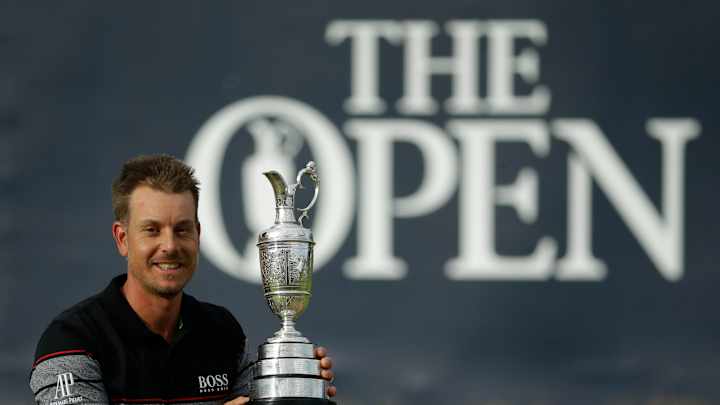Golf returns to the Olympics, minus its best players

A year away from golf's return to the Olympics after a 112-year absence, IOC President Thomas Bach said it would be good if the sport had a wide range of players from as many countries as possible competing for medals.
And that's what it delivered - 41 countries in the men's and women's competition - an example of golf's global appeal.
But the story of celebrated return has become more about who's not playing.
Jordan Spieth will be watching from home, still wondering if he should have set aside his personal concerns and gone to Rio de Janeiro. Rory McIlroy said he won't be watching at all, citing the Zika virus and then taking a swipe at golf as an Olympic sport by saying he would watch ''the sports that matter.''
Of eligible players, 21 men said they would not be going, nearly half of them citing concerns about Zika.
The women have carried the torch for golf, with only one player declining to go because of the mosquito-borne virus that has been linked to birth defects. Stacy Lewis has questioned whether the men make too much money to care about the Olympics.
She is getting married in the fall, and hearing so many men cite Zika because they plan to start families caused her to probe deeper into the threat.
''I talked to a lot of different people and basically went into the conversation thinking in my head, `OK, give me a reason why I shouldn't go.' And none of those people ever gave me a reason why I should not go,'' Lewis said.
''I want to be a part of the Olympics,'' she said. .''I think the Olympics are bigger than any golf tournament on the planet. It's bigger than the Masters. It's bigger than the U.S. Open. It's bigger than the Women's Open. It's the biggest thing out there, and I want to be a part of that.''
None of the top four in men's golf will be part of the Rio Games. The men will have only eight of the top 20 in the world, including Masters champion Danny Willett of England and British Open champion Henrik Stenson of Sweden.
The women will have nine of 10, only because South Korea has five players in the top 10 and countries only are allowed to send four.
The men's competition is Aug. 11-14, followed by the women on Aug. 17-20. Regardless of who plays, medals will be distributed to a golfer for the first time since George Lyon of Canada won the gold in St. Louis against a 77-man field - three Canadians, 74 Americans.
The women did not play.
THE FORMAT: The men and women will compete in medal play over 72 holes, just like they do throughout the golf season. The International Golf Federation has been criticized for not having a team format, which might have given some players motivation to attend. Ty Votaw, the vice presidents of the IGF, has said player support was imperative in golf's bid to get back in the Olympics, and most of them wanted a 72-hole format.
THE COURSE: For the longest time, the biggest headache in golf's return to the Olympics was getting the golf course built. American golf architect Gil Hanse was selected to design Olympic Golf Course in Barra da Tijuca, and it was delayed because of politics and environmental lawsuits. A test event was not held until March and involved nine Brazilian players. The course could be the star of the Olympics. It is to become Rio's only public course when the Olympics are over to help grow the sport.
MALE FAVORITE: Stenson is the highest-ranked player at No. 5 and coming off arguably the greatest final round in a major when he won The Open at Royal Troon. He would be considered a favorite for the men's gold along with two-time Masters champion Bubba Watson, Sergio Garcia of Spain, Rickie Fowler and Justin Rose. Andy Murray won a gold medal in tennis before he won a Grand Slam event, and that could be a strong possibility in golf. Garcia, Fowler, Patrick Reed and Matt Kuchar are among the highest-ranked players to have never won a major.
FEMALE FAVORITE: Women's golf doesn't have as much depth as the men, and there are fewer surprises in the big events. While the Koreans have strength in numbers, the favorites start with Lydia Ko of New Zealand and Brooke Henderson of Canada, a pair of teenagers who are No. 1 and No. 2 in the world, and who won the first two majors in the LPGA season. Lexi Thompson is the highest-ranked American and a major champion. Lewis is the most accomplished American, though she is going on two years without a victory.
THE FUTURE: The biggest competition might be a year after the Olympics, when the IOC votes which events will be part of the Tokyo Games, and whether golf remains part of the Olympic program beyond 2020. Golf's future has taken a big hit with so many male stars pulling out, and the IGF has said it hopes the IOC will consider the myriad problems in Brazil in assessing the withdrawals.
